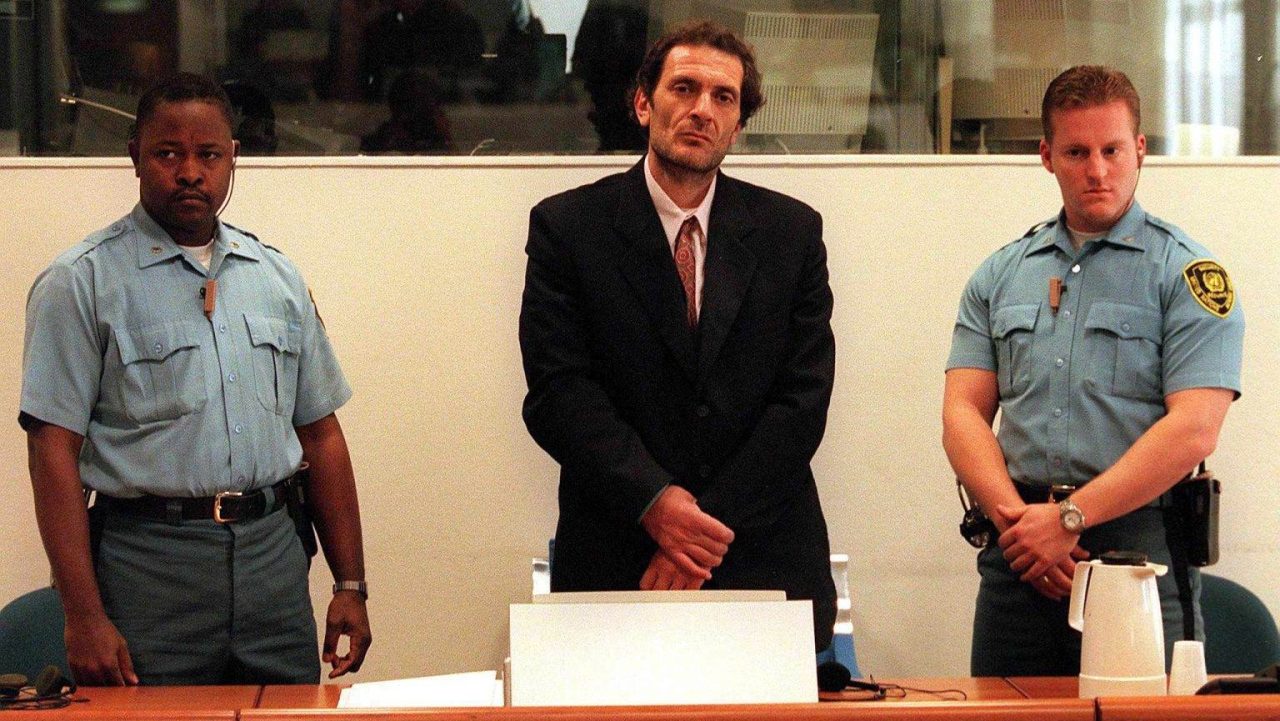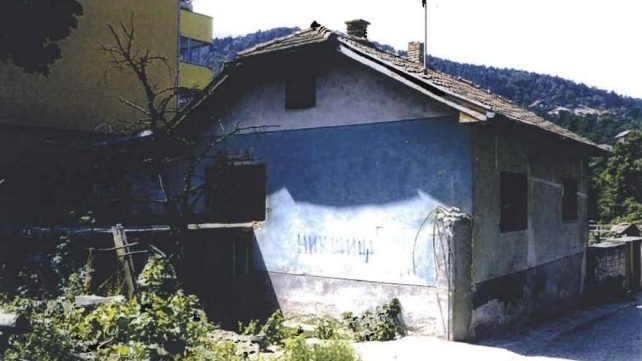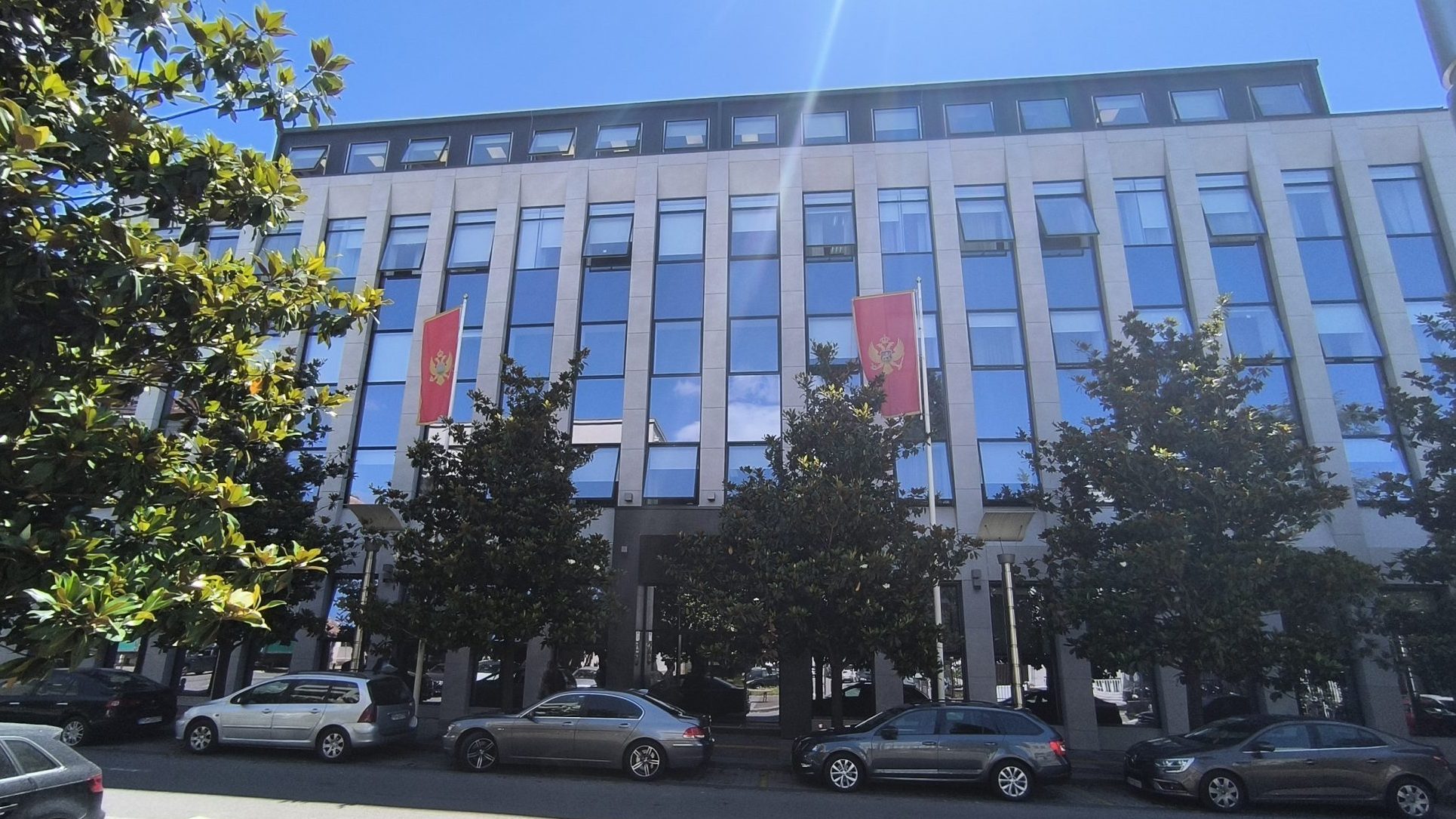This post is also available in: Bosnian
The woman, a protected witness identified only as Witness 50, told the trial that the man verbally abused her before raping her. “You Muslim women, you Bule , we’ll show you,” she quoted him as saying.
After the attack, “everything hurt”, the witness said. “My stomach, my back, my legs, everything ached. What hurt me most of all was that he was certainly some 30 years older than I was. He was probably my father’s age.”
The testimony came during the trial of Dragoljub Kunarac, wartime commander of a special volunteer unit made up of fighters mainly from Montenegro. Kunarac was sentenced to 28 years in prison for raping and enslaving Bosniak women.
In ICTY documents in the case, at least ten Montenegrin soldiers are mentioned, as well as a house in the Foca settlement of Aladza that served as the so-called ‘Montenegrin headquarters’. In the Kunarac indictment, at least four soldiers from Montenegro are mentioned as participating in rape in Foca.
One witness told the trial: “The Montenegrin soldier who raped Witness 50 threatened to cut off her hands and feet and take her to the church for baptism .”
Such fighters came to be known as ‘weekend warriors’ – not regular soldiers in the Yugoslav People’s Army or the Bosnian Serb Army, but volunteers who went to the conflict zone for days or weeks at a time, a short drive over Montenegro’s northern border. Some went for the Serb cause, others for what they could steal.
“They were called ‘weekend warriors’ because some of them intentionally went to war for the purpose of looting, occasionally, for several days,” said Bojana Malovic, legal adviser at the Montenegrin NGO Human Rights Action.
“Basically, Montenegrin citizens committed numerous robberies, arsons, rapes, murders, abuses and were involved in wartime profiteering,” Malovic told BIRN.
It’s a phenomenon that rights groups say authorities in Montenegro have done little to investigate.
Despite the existence of evidence, including ICTY files, the Montenegrin Special State Prosecutor’s Office has to date filed only three indictments for the participation of Montenegrin military volunteers in war crimes in Bosnia and Herzegovina and Kosovo. It is investigating at least 12 cases, but critics say it is far too slow.
“Since November 2020, the Special State Prosecutor’s Office has been exploring evidence that may relate to ‘weekend warriors’, since it includes more than 15 Montenegrin citizens suspected of serious crimes – including murder, torture, sexual slavery and rape in the Foca area in Bosnia,” said Malovic.
“However, as this procedure is in the reconnaissance phase, their identities are not known to the public.”
“Recently, the work on the cases submitted by the Hague Tribunal, which may partly relate to ‘weekend warriors’, has been updated,” said Malovic. “However, we can expect the completion of these investigations only in the next two years.”
One conviction

Montenegro, as part of Yugoslavia, directly participated in the wars of the 1990s in Croatia and Bosnia, while Montenegrin citizens, as members of the Yugoslav Army, participated in the war in Kosovo. There were no acts of war in Montenegro, but war crimes were recorded on its territory.
Montenegrin journalist Sead Sadikovic said he vividly remembers seeing a group of around 15 men he described as ‘weekend warriors’ disrupting an anti-war gathering held by the opposition Liberal Alliance of Montenegro in the town of Bijelo Polje, in the north of Montenegro, in the early 1990s.
“I remember that they were armed and that they stopped the buses with the ‘Liberals’ in them,” Sadikovic told BIRN. “They gathered in the park, partied and sang their songs. Today, some of them are ashamed of all that.”
Such men began popping up in Foca and other parts of eastern Bosnia from May 1992 onwards. Foca became synonymous with the systematic rape of Bosniak women.
In court proceedings in Bosnia, Kosovo and Croatia, there are records of Montenegrin citizens participating in war crimes and robberies as volunteers in those countries. So far, three indictments have been filed in Montenegro against Montenegrin citizens for war crimes in neighboring countries, one of which ended in a guilty verdict.
In December 2019, the Appellate Court of Montenegro confirmed the verdict by which Vlado Zmajevic, a former member of the Yugoslav Army from the Montenegrin city of Niksic, was sentenced to 14 years in prison for the murder of four Albanian civilians in the village of Zegra near Gjilan/Gnjilane during the 1998-99 Kosovo war.
Montenegrin citizen Slobodan Pekovic is currently on trial in Podgorica, accused of killing two people and raping a Bosniak woman in Foca in 1992 as a soldier of the Bosnian Serb Army, though he was released from custody in October.
In June 2023, the Special State Prosecutor’s Office filed an indictment against Montenegrin border officer Zoran Gasovic, who is accused of crimes against humanity in Hadzici near Sarajevo in 1992 as a member of the Bosnian Serb Army.
The Special State Prosecutor’s Office did not respond to a request for comment.
Indictments in Bosnia and Kosovo
A house in Foca that was used as a wartime headquarters by soldiers who were mainly from Montenegro. Photo: ICTY
In Bosnia, indictments have been issued against two Montenegrin citizens who could be characterised as ‘weekend warriors’ – Ranko Radulovic and Miodrag Nikacevic.
Radulovic was charged in 2020 with involvement in an attack on civilians in the Foca area, including the destruction of property, imprisonment and sexual assault. Radulovic pleaded not guilty in September 2021 via video link from Podgorica.
Radulovic, 64, was accused of rape during witness testimony at the Kunarac trial but was never investigated in Montenegro for war crimes. He has been on the run since June this year since being accused of raping a 23-year-old woman in Niksic.
In December 2010, Nikacevic was sentenced to ten years in prison for crimes against humanity committed in the area of Foca.
“The court in Bosnia and Herzegovina charged Nikacevic with the persecution of the Bosniak civilian population from the municipality of Foca, during which he participated in the forced disappearance of two Bosniak persons, assisted in the rape of two Bosniak women, and participated in the imprisonment and forced relocation of Bosniak civilians,” said Malovic.
Also in Bosnia, the rape trial of Montenegrin citizens and former Bosnian Serb Army fighters Milutin Djilas and Rajko Vojvodica is ongoing.
In Kosovo, Montenegrin citizen Ekrem Bajrovic was sentenced in July to 12 years in prison for war crimes committed in May 1999 against Kosovo Albanian civilians in the municipality of Istok.
The article is part of a project called ‘Culture Of Memory for a Brighter Future’, implemented by the Civic Alliance in partnership with BIRN Montenegro, supported through the regional project EU Support for Building Trust in the Western Balkans, with the financial support of the European Union.
The regional project is being implemented by the United Nations Development Program (UNDP). The content is solely the responsibility of the author and does not necessarily reflect the views of the donors.


